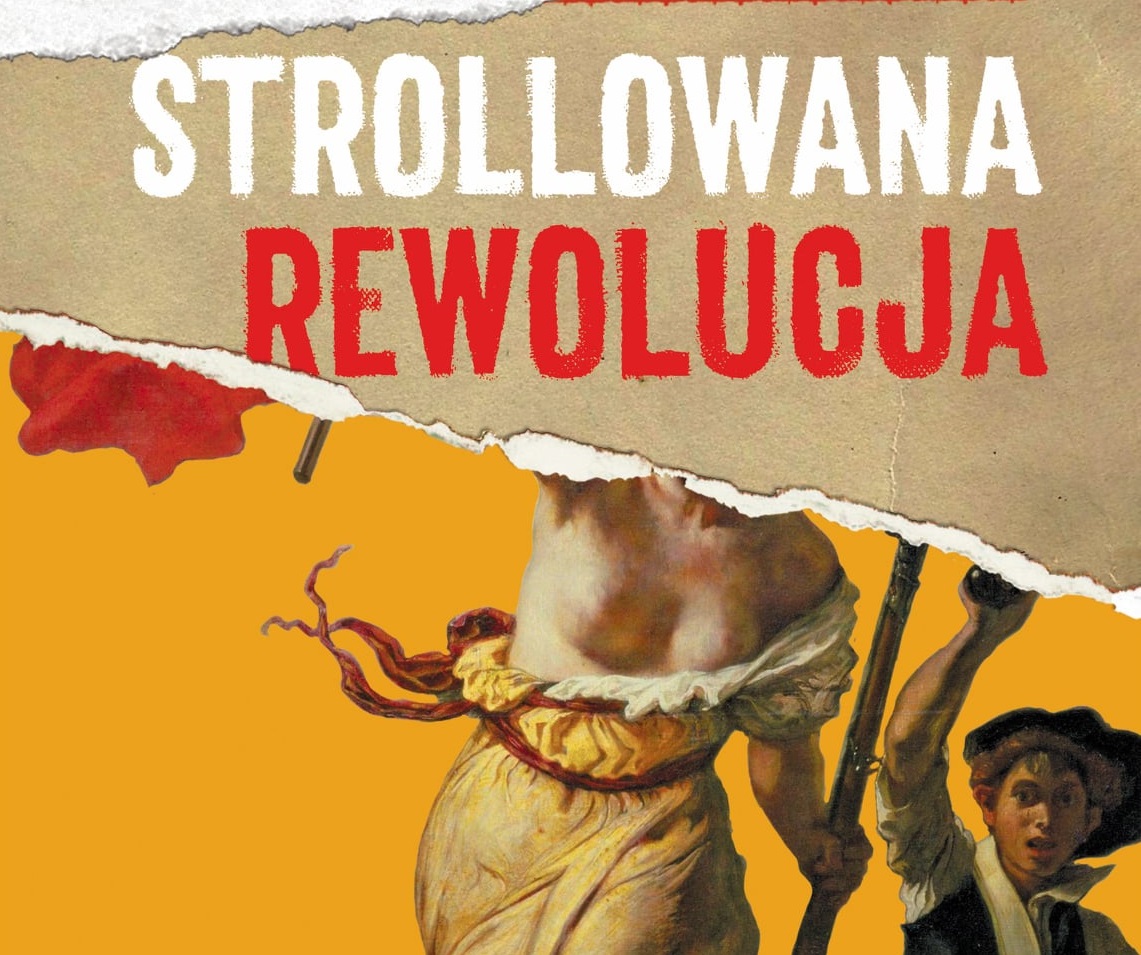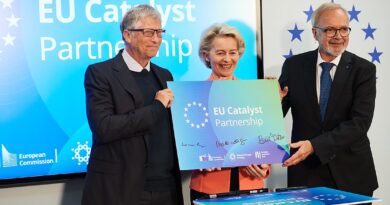Things are still to become interesting: the most recent book of Rafał Ziemkiewicz

The theme of the book “Trolled revolution” concerns experiencing Polishness in modern times and subsequent civilizational transformations.
Jacek Bartosiak
For many years I have been trying – to be quite honest, I am still trying, but it will probably never get there – to describe the history of the partition generation1. In the form of a novel, script for a TV series, essay – this is aspect is secondar. I am fascinated by how much a man born in, say, 1775 could have experienced. As a young man entering his adolescent life, caught in the middle of the Constitution2 of May 3rd and the war for it, the disgrace of the Grodno Sejm3, and the hope of the Kościuszko Uprising, he then experienced the catastrophe of the Polish Partitions and post-Partition depression. Polish Legions, the Napoleonic epic4, the rise and fall of the Duchy of Warsaw. Afterwards, on May 3rd, he and others could rejoice in the restitution of Poland as the sovereign Kingdom of Poland, although yes, in a personal union with Russia, but with its own constitution, laws, the Sejm, and the army, and shortly thereafter he and others would experience bitter disappointment when it all turned out to be a façade. He could, as a man in his prime, participate in the uprising and downfall of another insurrection, today known as the November Uprising, observe the later bustle of emissaries and conspirators, crowned with the Revolutions of 1848, and finally even from decrepit old age, witness the catastrophe of another uprising5 and a wave of repression that followed, burying the Polish raison d’état, as he would have to admit, entirely.
What an emotional rollercoaster, so much hope and disappointment, futile triumphs and unsettled defeats … And in the background of all this, the whole world was utterly changing beyond recognition, From agricultural to industrial, from European to global, from monarchical-aristocratic to bourgeois-republican, from the universe of chivalrous honor to the marketplace of mercantile and national interests.
This is how the latest book of Rafał A. Ziemkiewicz begins, immediately introducing us in this special way to the mood necessary to swallow the entire book whole.
Ziemkiewicz continues the story from a different angle: this time the plot runs through consecutive scenes and stages of his own life – from the People’s Republic of Poland to the present, more and more troubled (and uncertain) times. He sums up the intriguing opening of his book with the following observation: “With time, I came to the conclusion that my generation has perhaps been given a quite comparable journey through the ages”.
Another end of the world
From the Polish People’s Republic to the Third Polish Republic. From the Soviet tyranny to the decline of the West today, which, as he admits, Ziemkiewicz had emphatically idealized earlier in his youth, from the poverty of the 1970s and 1980s in the Polish People’s Republic, to the great changes of the Third Polish Republic, joining the European Union, integrating with the West, up to the present – as the author writes – the progressive backwardness of Western Europe in relation to, for example, China or the rest of the world. The decline of education, knowledge, the advancement of ideology, even censorship. As Ziemkiewicz sums up – this is another “end of the world”, the ends of which come about every few generations. And because “dusk falls gently”, you can “miss the end of the empire” as in the case of ancient Rome. “Everything happens so imperceptibly that when a revolution suddenly breaks out, it seems to everyone to be the cause, although in fact it is a logical and inevitable effect. That’s what this book is going to be about”.
And that is what it is about –the decline, the multilevel crisis, which in the following pages of the book is discussed and broken down into prime factors, along with the accompanying growing anxiety.
It is therefore about our civilization, and more precisely about European civilization, about the West, about the West that Poles have dreamed of, and probably the author himself as well, because he is heavily disappointed with it. In this West, where Ziemkiewicz, generously using his rare gift of a free, yet flowing pen, there is an accumulation of phenomena heralding a deep spiritual crisis, including the breakdown of civilization’s faith in itself. This was to open the way for a “trolled revolution”, the central protagonist of the book.
In a broad gesture, sharing with the reader the rapid flow of thoughts, feelings, emotions, impressions, diagnoses, so ordered and yet clearly disordered (but which he wants to share generously with the reader in his own style), Ziemkiewicz presents his perception of the present state of our (Western – European?) civilization. And its bad condition is springing from computer and TV screens, it hits us with YouTube, from our “supersmartphones”, and even here and there from traditional radios. In the crowd of information bombardment, Ziemkiewicz catches various “flowers” for us to admire in his book, using rich examples to illustrate what he is sharing with the reader.
I do not agree with the author in everything, especially the moral issues that he raises in the book. I also believe that all is not yet lost when it comes to European civilization. I do not believe that European civilization is as peaceful or “green” as it seems today. It is experiencing a breakdown, yes, but it is unique and has the capacity for self-rebuilding or even resurrection. This ability is embedded in everything that has built Europe over the last two and a half thousand years.
Calling for Poland
Despite the fact that Ziemkiewicz touches on almost everything: agriculture, nuclear, climate, parades and LGBT, energy, army, Green Deal, his favorite topic of the elite, and finally democracy and the media, the book (like most of his books that I have had the pleasure to read) is a cry for Poland from the dreams of Rafał A. Ziemkiewicz. Anyway, this is laid out almost literally at the end of the book.
Thus, its theme essentially revolves around experiencing Polishness in the new times and subsequent civilizational changes. This is reflected in every page of this book, written in a language that, as is always the case with Ziemkiewicz, flies so smoothly and quickly that I am wondering yet again, when reading his works, how one can transfer such thoughts, swirling – as it seems – at the speed of light, to paper. I wish I could, but that’s a different story.
1 This is a reference to the Partitions of Poland, which took place in 1772, 1773, and 1775
2 In 1791, Poland became the first nation in Europe and the second globally, after the United States, to adopt a modern constitution
3 At the session of the Grodno parliament of the Polish–Lithuanian Commonwealth, held in autumn 1793 in Grodno, deputies of the Grand Duchy of Lithuania, bribed or coerced by the Russian Empire, passed the act of Second Partition of Poland.
4 This refers to the Coup of 18 Brumaire from November 9th, 1799, which brought Napoleon Bonaparte to power as First Consul of France and marked an end to the French Revolution
5 The January Uprising was an unsuccessful insurrection in Russia’s Kingdom of Poland between 1863-1864 aimed at restoring the Polish–Lithuanian Commonwealth
This review was publishe in “Do Rzeczy” magazine in December 2021



